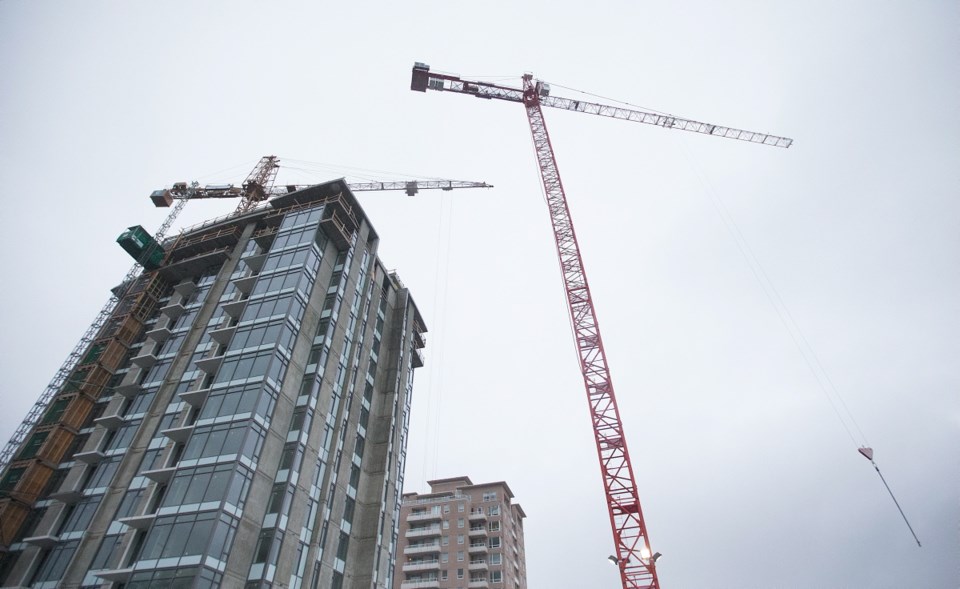The province has promised new housing in its latest budget, but a key challenge that persists is the time it takes to get projects approved and started, say real estate industry representatives.
“We hope that the province will continue to work with the local municipalities to help speed up the processes of getting some projects approved,” said Kyle Kerr, president of the Victoria Real Estate Board.
A package of new taxes on real estate was introduced this week, along with promises to help build 114,000 units of housing and inject $7 billion into new housing over the next decade.
“Any time we see a strong commitment from the government to spend money on housing in both the affordable, workforce and social housing sector, we are always excited,” Kerr said. “We need more supply for all those different segments and we are just hoping that we will get a lot of those funds into [Greater] Victoria.”
The time span to get a project built is the main concern, Kerr said. “It can take up to three years to get an approval for an apartment building and then it is three years to build it.”
Cameron Muir, chief economist for the B.C. Real Estate Association, concurs. “The real culprit in home prices in metropolitan area markets is this tremendous lag time between conception and completion of a project.”
Greater Victoria’s rental vacancy rate is tight at 0.7 per cent. Would-be buyers, some now renting, are faced with low a inventory of properties for sale, which helps push up demand and prices.
There are 6,000 rental units planned or under construction in the capital region, but supply has not yet caught up with demand.
The provincial budget also introduced a foreign-buyer tax in the capital region and Nanaimo, with a rate of 20 per cent, up from 15 per cent when it was implemented in Metro Vancouver last year.
As well, the property transfer tax for properties of $3-million or more was moved to five from three per cent.
Real estate agent Tony Joe of Re/Max Camosun said those properties are a small section of the marketplace.
He is concerned about B.C.’s plans to introduce a new tax this fall to curb speculation that will apply to those who do not pay income tax in B.C. and leave properties here vacant.
Joe fears this will capture people such as Albertans, who come here part-time and leave their property vacant otherwise. High-end condos may prohibit rentals, he said. And an extra tax might send these property owners elsewhere, such as California, Joe said.
The immediate effect of higher tax on properties worth $3 million and up has sent parties in two potential sales scrambling, said Logan Wilson, real estate agent with Sotheby’s International Realty in Victoria. He’s working with Canadian buyers, each interested in a local property. “In these deals, either the buyer pays extra or the seller takes less,” Logan said.
Wilson said he has invested money, time and effort to sell these properties. Now the participants are “trying to keep everything together with a whole new aspect of the deal that was a surprise to everybody.”
Don McClintock, president of the Vancouver Island Real Estate Board, said bringing the foreign buyers tax to Nanaimo is not expected to affect that market because there are few out-of-country purchasers.
The higher tax on $3-million properties is unlikely to bring an impact either because of the low number of residential properties in that range, he said.
Tom Davidoff of the University of British Columbia’s Sauder School of Business hopes the speculation tax will help make the lower end of the market more affordable, particularly for condos.
He said the speculation tax makes a lot of sense in terms of economics because B.C. has high income and sales taxes, but low property taxes, which encourages vacationers to buy property and makes life more expensive for workers.
— With The Canadian Press



